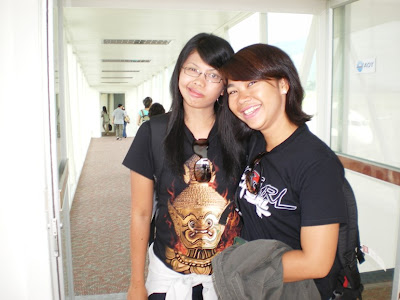After I'd mailed off the review, I found a book on Burroughs, With William Burroughs: A Report from the Bunker (Seaver Books, 1981), by a British celebrity journalist named Victor Bockris. Printed on page 32 was a photo of Burroughs with his companion/amanuensis James Grauerholz, looking at a mockup for the dust jacket of Cities of the Red Night. It was identical to the published version, except for the subtitle, A Boy's Book, which, according to the caption, "was later removed from the jacket and title page." It stunned me; irrationally, I felt directly addressed by that picture. Of course the subtitle was probably removed for marketing purposes, lest some clueless bookseller stock it in the children's section. But still, it felt eerie.
The subtitle has been restored in some later editions, though not to the covers of the books as far as I can tell. I still wonder if it meant that Burroughs had more self-consciousness, and even humor, about what he was doing than I realized when I wrote these reviews. Later I saw footage of Burroughs reading his work aloud in Howard Brookner's 1983 documentary Burroughs, and realized for the first time how very funny Burroughs's writing could be. But still later, I learned from Dennis Cooper's obituary of Burroughs in All Ears (Soft Skull, 1999), that some of Burroughs's later works, possibly including Cities, were partially ghostwritten. That would fit -- parts of Cities of the Red Night felt slightly off, more like an imitation of Burroughs than the real deal.
Burroughs's influence continues to be felt, down to the hoaxer J. T. Leroy who wrote of junky street hustlers, and the extravagant violence of "extreme" cinema. I am still not innarested.
HIS HORRIBLE OLD CONDITION; or, COME BACK TO THE RAFT, BILL HONEY!
Cities of the Red Night
by William S. Burroughs
Holt, Rinehart & Winston, 1981
332 pp.
$14.95 clothbound
The jacket blurb touts Cities of the Red Night as Burroughs’s “magnum opus, perhaps even more important than Naked Lunch. … equally shocking and provocative.” I don’t think so. The capacity of art to shock is like a narcotic: the user develops a tolerance and requires progressively larger doses as time passes to get the same, or any, effect. Since Life has outdistanced Art by several lengths since Naked Lunch appeared in 1959, it is probably to Burroughs’s credit that Cities of the Red Night, his latest novel, is not more shocking than his earlier work. It’s less so, I’d say, and I don’t think it’s just because I’m jaded. Naked Lunch was obsessive, dreamlike, surreal, and as casually cruel as a cat mutilating a mouse. The horrors Burroughs depicted so lovingly seemed only the superficial symptoms of a deeper, cosmic malignance probably too overwhelming to be faced. Cities of the Red Night is petit Guignol, done with wires and plaster casts and green pea soup. A sense of menace builds for awhile, but collapses well before the end to reveal that it’s just a fake, and a cheap one at that. Perhaps Burroughs wants to reassure us, though I doubt it. More likely he is a minor writer who has already said his say. For a writer who believes that words are a malignant virus, he surely is reluctant to take the cure.
I said in a review of
There is also a subplot involving Clem Snide, Private Asshole (that’s what it says here, dear reader, no shit). Snide is sent on the trail of a boy named Jerry who has disappeared in
There is still another subplot involving B-23, a mysterious disease caused by a radioactive virus, causing sexual delirium, spontaneous ejaculation of infectious radioactive semen, and death. Addiction to opiates provides some resistance to it. Burroughs aficionados will be interested to know that radioactive viruses, erogenous sores and rectal mucus are more prominent in this than in previous volumes, to the point of becoming leitmotifs if not actual characters. I believe that Burroughs considers erogenous sores cute: “It is a gang of naked boys covered with erogenous sores. As they walk the giggle and stroke and scratch each other. From time to time they fuck each other in Hula-Hoops to idiot mambo” (p. 222). Isnt’t that sweet? The Hanged Man, one of Burroughs’s fave sexual talismans from Naked Lunch, is also back.
It is beyond me how anyone could take this book seriously. In Naked Angels (a 1976 study of Burroughs, Allen Ginsberg, and Jack Kerouac), John Tytell quoted Marshall McLuhan’s comparison of Burroughs to “a man who is knocking on the door to explain that flames are leaping from the roof of our house,” and said that Burroughs’s method “is cleansing and purgative, however terrifying the implication” (p. 139). But it is hardly news that our society is in trouble. While Burroughs deserves some credit for having said so in the way he did during the 1950s, many other writers since then have colonized the territory he pioneered, and Burroughs now comes on more like a septuagenarian doing Trick or Treat at our door while flames are leaping from the roof of our house.
Nor is shocking the average American much of an accomplishment. I think it is more significant that Burroughs became widely read by the slightly more adventurous, and among the straight college boys with hip leanings I’ve known, Burroughs is (with Genet and Ginsberg) the queer writer most likely to be known to them. This is, I’m convinced, at least partly because he makes homosexuality sound like a boarding school in which there are no vacations Burroughs was in the days of Naked Lunch as guilt-ridden about fucking boys as he was about shooting junk, and his ambivalence was expressed full-blown in his writing. Sex, smack, and mayhem were fused into a “cry from hell,” as Newsweek called Naked Lunch. Homosexuality could be lumped together with addiction as part of Burroughs’s degradation, and there was little in his texts to argue otherwise.
Burroughs became quite influential, but how well he was understood is another matter At least two important rock bands, Steely Dan and Soft Machine, took their names from his writings, but not because they were prepared to deal with gay themes; and Hunter S. Thompson, who in his obsession with random violence and drug-crazed excess is a parody of Burroughs, substitutes football for sex of any kind in his writing. Homosocial, sí; homosexual, no – at least in print. What straight males like Thompson, or Fagen and Becker of Steely Dan, or Norman Mailer (who said that Burroughs “may conceivably be possessed by genius”) could relate to, and borrow for their own use, was Burroughs’s virulent misogyny. Thus he became the Godfather of Gonzo.
Cities of the Red Night supposedly goes beyond warnings of apocalypse to offer a vision of an alternative: Captain Mission/Strobe’s Utopian communes. “I cite this example of retroactive Utopia,” Burroughs says in a foreword, “since it actually could have happened. Had Captain Mission lived long enough to set an example for others to follow, mankind might have stepped free from the deadly impasse of insoluble problems in which we now find ourselves. ... Your right to live where you want, with companions of your choosing, under laws to which you agree, died in the eighteenth century with Captain Mission. Only a miracle or a disaster could restore it” (pp. xiv-xv) But Burroughs offers only a sketchy and unconvincing picture of his utopia. For example, the death penalty is to be abolished under his Articles, “except for violation of the Articles,” which takes back with one hand what the other just gave. Since in Burroughs’s fiction the bad guys always wear black hats, it may not seem like a contradiction to him, but in practice it would work out to no change at all. Even in fiction Burroughs is too fond of blowing away the cops of his dreams ever to give it up.
There is also his treatment of women. On pages 111-112 Burroughs gives voice briefly (and for the first time in his fiction to my knowledge) to a woman character who does not “relish being treated as a breeding animal” without implying that she is a lesbian (an insult, from him) or a prude. Having paid lip service to this issue, he drops it. Women through most of the book, as in his writing in general, are either villains or breeding animals. Captain Strobe’s bold buggering buccaneers are almost exclusively male. As a fantasy, this might be considered (though not by me) cute or sexy; as a serious account of Utopia it is, to use the original meaning of the word “utopia,” nowhere.
Burroughs considers himself tough-minded and unsentimental (See, for example, the interviews in The Job [Grove Press].) But he really seems to think that a free human society can be established simply by declaring principles and killing of a few villains. If this were true, humanity would not be in the trouble we are now. It is very convenient, I know, to locate the source of unfreedom in evil controlling intelligences outside oneself, but it is a lie. I think Burroughs himself knows better, but if so he hasn’t put that knowledge into this book.
There is more: the racist description of Arab and Latin-American youths as quasi-human sex objects (or E. M. Forster Syndrome); the pseudo-scientific jargon Burroughs uses as pretentiously as do the scientists he often ridicules; the borrowings from such pop-hip frauds as Aleister Crowley, Carlos Castaneda, and Wilhelm Reich; the invocation at the book’s beginning of deities of death, decay, and rotting genitals, which to my mind shows where this book is really at; and the maddening sense I keep having that Burroughs thinks he has written a book of major importance. Burroughs is not a liberated or liberating soul, but the artistic heir of writers like Baudelaire, Huysmans, and Wilde, whose celebration of the bizarre and scandalous was inseparable from their guilt over it. He is – I hope – the end of a tradition, not the founder of one. As the former, I can respect him somewhat, for he helped to kill off that tradition. As the latter, I can only quote his words from Naked Lunch: “You think I am innarested to contact your horrible old condition? I am not innarested at all.”













